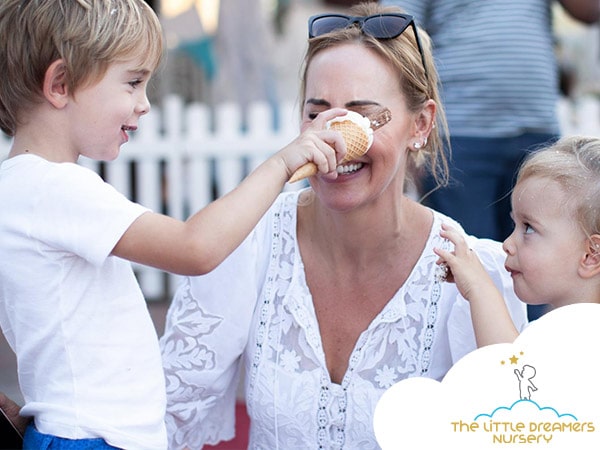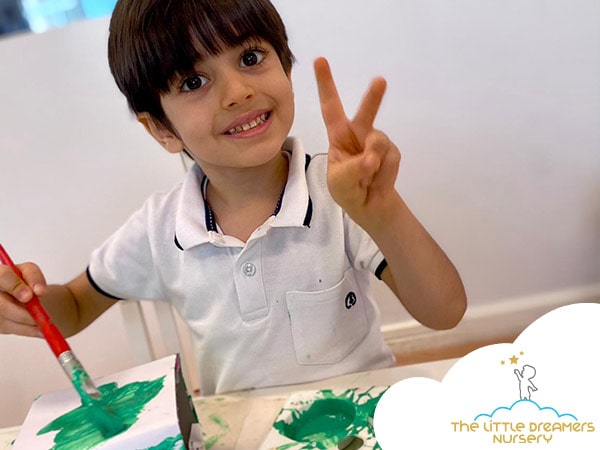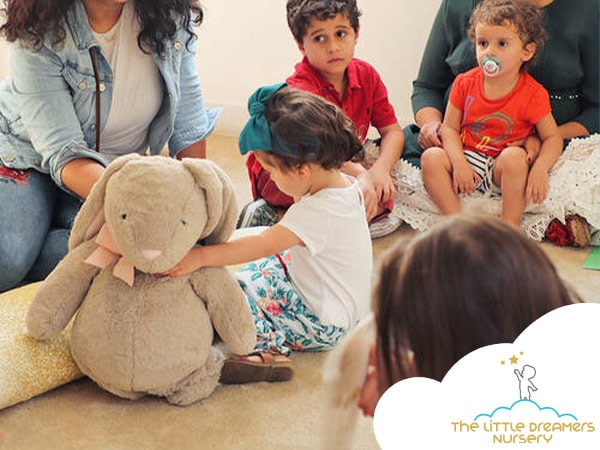How do I parent my 2-year-old? How can I be a better parent to my 2-year-old? These questions are often asked by all parents, especially new parents and new mothers. Throughout this short article, we will discuss 9 parenting tips for new parents, but also for all parents.
How do I parent my 2-year-old?
You might feel that you’re unprepared for raising children and that you need to know lots of parenting tips for toddlers. To go through the most rewarding job in the world (being a parent), there is no need to grab all of the baby care tips for a new mother. You will have enough time to learn in this wonderful period of life. However, you can feel more prepared as a parent by following these nine tips for parenting.
Effective Parenting Tips
1st Tip: Building Self-Esteem in Children
When children see themselves through their parents’ eyes, they begin to develop a sense of self. Your voice tone, your body language, and your every expression are absorbed by your children. The words that you say and the actions that you take as a parent will impact their self-esteem more than anything else.
It’s important to praise their accomplishments, no matter how small, and to let them be independent in order to make them feel strong and capable. Children will feel worthless if they are belittled or if they are continuously compared unfavourably with another child.
That might seem like an obvious effective parenting tip that every parent knows, but putting it into practice requires some effort sometimes without us even realising.
Do not make loaded statements or use language as a weapon. For example, comments like “What a stupid thing to do!” or “You act more like a baby than your little brother!” can damage children’s self-esteem and confidence skills. New parents need to know this parenting tip as they might not yet realise the power of words, even if they just using them flippantly or when exasperated.
Be compassionate and pick your words carefully when speaking to your child. Children should know that everyone makes mistakes and that you still love them even when they don’t behave well.
fun activities to do at home with toddlers
2nd Tip: Recognise good behaviour in kids
How often do you react negatively to your kids in a given day? Criticising is more common than complimenting and easy to slip into. If your boss treated you in that way, even if he or she was well-intentioned, how would it make you feel?
You can do more to encourage good behaviour by praising kids whenever they do something right: “You made your bed without being asked – that’s brilliant!” or “I saw how patient you were with your sister. That was very kind of you, well done.” This technique has a more long-term impact than repeated scolding.
Every day, find something to praise. It can work wonders if you are generous with your rewards – your love, hugs, and compliments are often enough to motivate your children. Eventually, you will find that you are “growing” more of the behaviour you desire in your child.
Top 10 Good Habits For Children That Every Parent Should Know
5 Bad habits in children and how to prevent them
3rd Tip: Establish limits and enforce discipline consistently
Every household needs discipline. To help kids learn self-control and to learn acceptable behaviours, discipline is necessary. Even though they may test your limits, children need these limits in order to mature into responsible adults.
Children can gain self-control and develop an understanding of expectations when house rules are established. For example, there might be rules that prohibit watching TV until homework is completed and that no teasing or name-calling is allowed to siblings.
Related article: my 2 year old won’t eat anything but snacks
Consider implementing a system: a warning, followed by consequences like a “time out” or loss of privileges. Failure to enforce consequences is frequently a mistake made by parents. It is not possible to discipline kids one day and ignore them the next for talking back. You can only teach what you expect by being consistent. Children will continue with unwanted/poor behaviour if they know that there will be no consequences from their parents.
Related article: short story with moral lesson
4th tip: Spend time with your children
It can be difficult for parents and children to get together for a family meal, let alone to spend quality time together. Children really value sharing these moments of their daily routine with their parents. It’s a good idea to start your day 10 minutes earlier so that you can eat breakfast with your child or go for a walk together after dinner. Children who aren’t getting the attention that they want from their parents are more likely to misbehave if their parents aren’t paying attention to them.
Related article: Why Cooking With Children is Important?
Working parents shouldn’t feel guilty. Your kids will remember the many little things you do, such as making popcorn, playing cards or going to the park on the weekends.
5th tip: Act as a good role model
Children learn a great deal from watching their parents. When they are young, they tend to take more cues from you. Consider this question before you lash out or shout at your child: Is that how you want your child to behave when angry? You are constantly being observed by your children and they are very likely to mimic your behaviour. Children who hit other kids, often have a parent who models aggressive behaviour at home.
Respect, friendliness, honesty, kindness, and tolerance are traits that you want to see in your kids. Act unselfishly. Do good deeds without expecting rewards. Compliment others and express gratitude. Be kind to your kids, and expect the same from others in return.
Related article: my toddler hits me
6th tip: Communicate effectively
Parents can’t expect their kids to do everything for them simply because they “say so.” Children want and deserve explanations just as much as adults do. Unless we explain our values and motives, children may wonder whether they have any basis. Reasoning with children in a nonjudgmental manner allows them to understand and to learn.
Be clear about what you expect. Describe any problems, express your feelings, and invite your child to work on a solution with you. Make sure that the consequences are clear. Offer suggestions and options. Accept suggestions from your child. Communicate. When children are involved in making decisions, they are more motivated to follow through on requested actions.
Related article: How to potty train in 3 days? A step by step Guide of toilet training for parents
7th tip: Adapt your parenting style to the situation and be flexible
Perhaps you have unrealistic expectations if you often feel let down by your child’s behaviour. Parents who think in the terms of “should” (for example, “My child should be potty-trained by now“) might find it helpful to read up about the subject, to speak to other parents to get their opinions or to discuss with a child development specialist.
It may be possible to change a child’s behaviour by changing his or her environment. Make your surroundings less restrictive so that no matter what your 2-year-old wants, you won’t have to continually say “no.” Your relationship will be less frustrated as a result.
Gradually, your parenting style will need to change as your child changes. You can be sure that what works now won’t work as well a year or two from now due to the change in your child’s understanding, needs and abilities.
8th tip: Demonstrate Your Unconditional Love
You are responsible for correcting and guiding your children as a parent. However, how you express your corrective guidance can make a big difference in how a child receives it.
You should never create feelings of resentment or undermine self-esteem by criticising, blaming, or fault-finding your child. Instead, you should encourage and nurture. Despite your desire and expectation that next time will be better, make sure that your child knows that your love will always be there.
Related article: Preschool separation anxiety
9th tip: Understand your own needs and limitations as a parent
We all know that we are imperfect parents. There are strengths and weaknesses for every family leader. Be aware of your strengths – “I am loving and caring.” Commit to improving your weaknesses – “I need to be more consistent with discipline.” Have realistic expectations for yourself, your partner, and your children. Be forgiving of yourself, you don’t need to have all of the answers.
Parenting can be manageable if you make it a priority. Rather than addressing everything at once, concentrate on the areas that require the most attention at present. Accept your burnout. You need to take the time to pursue your own happiness (or your happiness as a couple).
Putting your needs first does not make you selfish. A good parent demonstrates this value by caring about his or her own well-being, a valuable quality to model for children.
The Little Dreamers Nursery Parents Workshops
We offer parents a Parent Specialist training workshop at The Little Dreamers Nursery. Parents agree that this nursery in Dubai is like a home away from home for their toddlers, and they feel just like at home here. We invite you to schedule a tour today!












